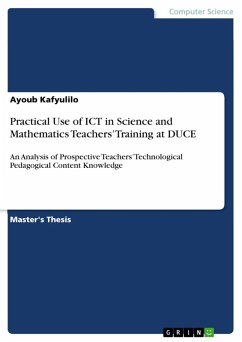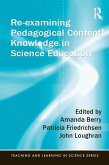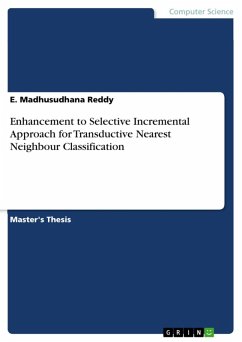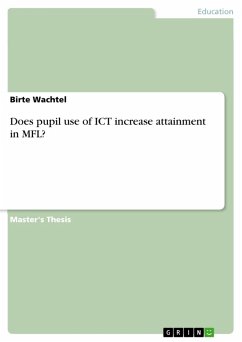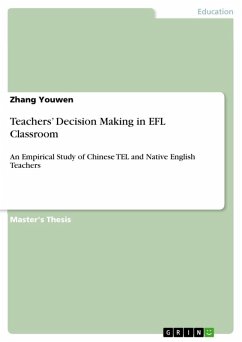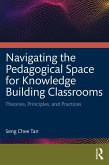Master's Thesis from the year 2011 in the subject Didactics - Computer Science, University of Twente (Behavioural Science), course: ICT in science and mathematics - Educational Science and Technology, language: English, abstract: This study investigated the ways through which pre-service science and mathematics teachers at Dar es Salaam University College of Education (DUCE) can acquire competencies for integrating technology pedagogy and content in teaching. Specifically the study investigated the preservice teachers' ICT integration competencies; practices that can be effective in enhancing pre-service science and mathematics teachers' competency in integrating technology, pedagogy and content; as well as the impact of those practices in the development of preservice teachers' technological pedagogical content knowledge. An action research approach was employed in the study, employing the pre and post-intervention assessment of preservice teachers' knowledge on technology, pedagogy and content. Planed interventions were carried out during the study, to enable preservice teachers to identify areas of weaknesses in their technology integration competencies, and propose alternative approaches for addressing the identified weaknesses. Student questionnaire, instructor interview and observation checklist were used to collect date before, during and after intervention. Researcher's log book, digital camera and audio recorder were used in recording events and activities taking place during the study. Findings revealed that when preservice teachers engage in hands on activities such as microteaching, lesson design and the opportunity to share their ideas with peers, they easily developed their technological pedagogical content knowledge. An analysis of knowledge change after the intervention, showed a significant difference between pre-intervention and post intervention preservice teachers' knowledge of TPACK. It is therefore concluded that, the adoption of hands on activities that uses technology and involve teachers in planning of what to teach, how to teach and with what technology to teach, and provision of an opportunity to share this plan with colleagues, can make a significant change in the development of TPACK among preservice teachers.
Dieser Download kann aus rechtlichen Gründen nur mit Rechnungsadresse in A, B, BG, CY, CZ, D, DK, EW, E, FIN, F, GR, HR, H, IRL, I, LT, L, LR, M, NL, PL, P, R, S, SLO, SK ausgeliefert werden.

